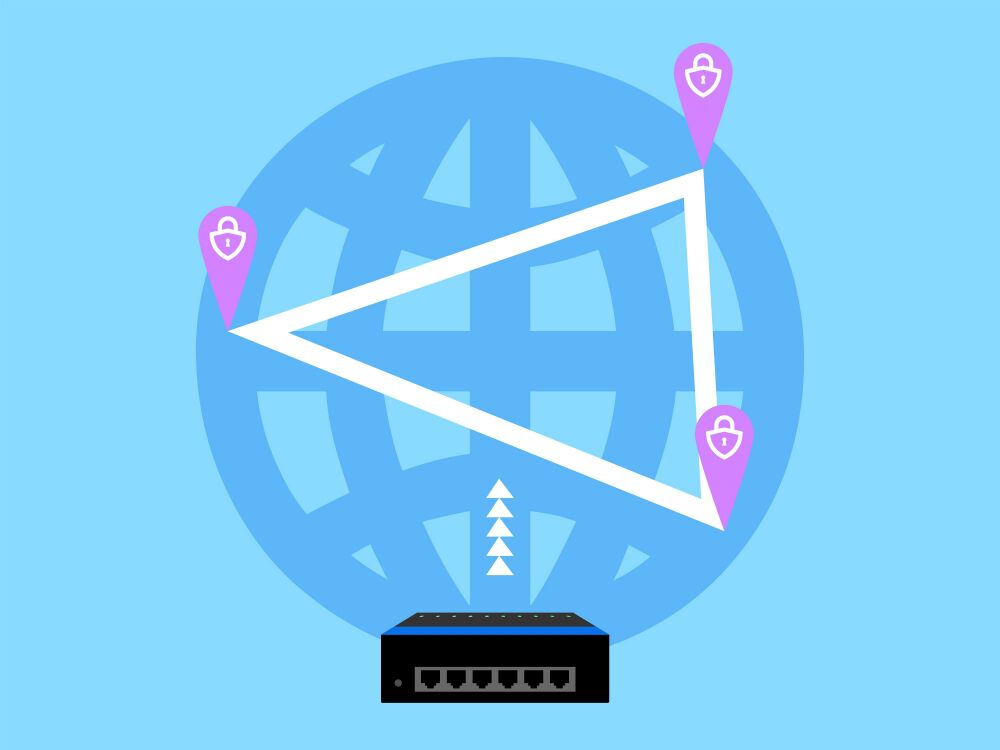What Is a VPN Router?

While your business is just starting out, you can probably get away with using standard, consumer-grade routers. But once you need to connect more than a handful of remote devices to the company’s network, it’s time to upgrade. For a more robust, consistent, and secure experience, a VPN router may be the better choice.
VPNs Explained
A Virtual Private Network (VPN) creates a secure tunnel that extends from within your company across the Web. This enables 24/7 secure access to central network resources from anywhere in the world without the need to dial into the office directly. Much like a firewall protects data on the office computers, VPNs are designed to protect it online. Data is encrypted as it travels through the VPN tunnel, ensuring secure access over public connections and safeguarding the data from unauthorized hacker sniffing.
VPN Use Cases
According to the latest study on U.S. Census Bureau data conducted by Global Workplace Analytics, 50% of American workers have a job that's compatible with remote work, and approximately 20-25% work remotely in some capacity. In the current business environment, where remote work is no longer a perk but a business imperative, VPNs offer secure access to remote employees or field associates who need to safely connect over untrusted, public networks. In a multi-branch situation, VPNs are useful for bridging secure connections between several offices or remote data centers.
The VPN Connection Distinction
Some types of VPNs require the remote computer user to log in using installed software, while others allow you to connect an entire remote site via a dedicated VPN router. The question is—which is best for your business needs?
Most standard WiFi routers support VPN pass-through functionality, which means the VPN user on a remote computer passes through the router and connects to your company's VPN server. The user manually logs in using software installed on their remote device. Once the connection is initiated, it cannot be shared with other devices on the same network. This scenario is ideal for remote or mobile workers—once they have the VPN software on their device, they can access the company network from pretty much anywhere.
A VPN router, on the other hand, establishes the connection at the hardware level for the entire site, without the need for individual software installations. All of the devices in one remote office—computers, tablets, smartphones, and smart TVs—can simultaneously access the VPN server at the headquarter office via the remote office network. This process resembles a broadband Internet connection, giving the whole remote office continuous network access.
Easy VPN Setup
VPN routers are typically complicated and difficult for a tech novice to set up, but some feature EasyLink technology, which performs the configuration for you. EasyLink simplifies the traditional, complex VPN setup configuration workflow into 3 simple steps: username, password, and IP address. Simply install the software on your computer and follow the on-screen prompts. EasyLink allows you to comfortably manage your router without the need for extensive IT knowledge or an expensive call to a computer technician.
Reasons to Upgrade to a Business-Class VPN Router
With a business-class VPN router, you can:
- Deliver secure, reliable remote connectivity to your company's data and internal resources at any time from anywhere.
- Create timesaving and cost-effective business processes for your customers, employees, and partners.
- Facilitate seamless work collaboration.
- Improve the reliability of remote connections and reduce your overall IT costs.
When it comes to making the jump from a standard consumer router to a business-class VPN model, the security, reliability, ease of use, and cost savings make the decision an easy one for many small businesses.
